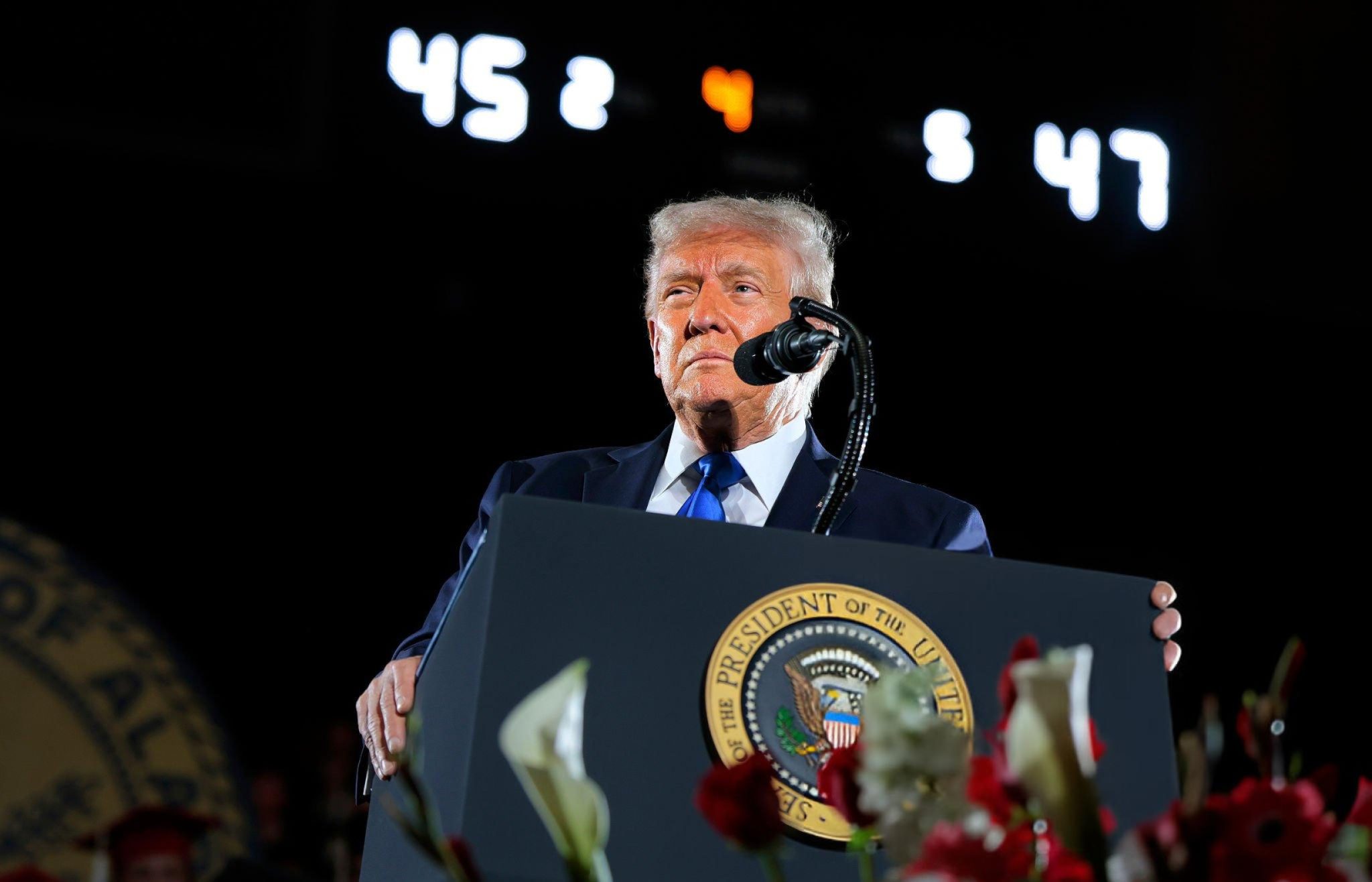US President Donald Trump has announced a sweeping new plan to impose 100% tariffs on films made outside the United States, intensifying his global trade battles and sparking uncertainty in the international entertainment industry.
The move, declared on Trump’s Truth Social platform, targets what he called a “deliberate campaign” by foreign governments to lure away US filmmakers with attractive subsidies, which he described as a “National Security threat”.
“It is, in addition to everything else, messaging and propaganda!” Trump posted on Sunday evening. “WE WANT MOVIES MADE IN AMERICA, AGAIN!”
The president said he had directed the US Department of Commerce and Trade Representative to begin formal procedures to introduce the levy, though exact details were noticeably absent. It is not yet clear whether the measure will apply to American studios filming overseas, foreign-made productions streaming on platforms such as Netflix, or cinema-only releases.
Commerce Secretary Howard Lutnick responded swiftly, stating, “We’re on it,” though he provided no further clarity.
The announcement follows Trump’s broader protectionist strategy since his return to the White House in January. In recent months, he has introduced a host of tariffs on imports from Europe, Asia, and Latin America, arguing these steps will revitalise US industry and preserve American jobs. Critics, however, warn the policies are fuelling inflation and stoking trade tensions worldwide.
The UK’s Department for Culture, Media & Sport, the British Film Institute, and the Motion Picture Association — which represents major Hollywood studios — have yet to comment on the development.
However, officials in Australia and New Zealand have voiced concern. Australia’s Home Affairs Minister Tony Burke vowed to “unequivocally defend the rights of the Australian screen industry.” New Zealand’s Prime Minister Christopher Luxon said his government was awaiting further details but affirmed their commitment to promoting the country’s film sector.
The proposal threatens to shake up a global film economy that has long relied on cross-border collaboration. Several recent blockbuster titles, including Deadpool & Wolverine, Wicked, and Gladiator II, were filmed outside the US. Many international locations offer tax rebates, incentives, and lower production costs — attractive propositions for American studios managing tight budgets.
President Trump has also revived a Hollywood charm offensive, appointing actors Jon Voight, Mel Gibson, and Sylvester Stallone as “Special Envoys” tasked with promoting investment in US filmmaking.
“They will serve as Special Envoys to me for the purpose of bringing Hollywood, which has lost much business over the last four years to Foreign Countries, BACK—BIGGER, BETTER, AND STRONGER THAN EVER BEFORE!” Trump wrote earlier this year.
Still, the US remains a dominant force in the industry. A recent report from research firm ProdPro revealed $14.5 billion (£10.9bn) in film production spending in the country last year — a 26% drop from 2022, but still higher than any other nation. Meanwhile, countries like Canada, Australia, New Zealand, and the UK have seen increases in investment, largely due to aggressive incentive schemes.
China, too, has reacted. In April, Beijing announced it was scaling back the number of American films permitted in Chinese cinemas, accusing Washington of “abusing” tariffs and warning that such moves risk alienating Chinese audiences.
“Domestic viewers will naturally turn away from American films if hostility continues,” said a spokesperson for the China Film Administration.
On Sunday, speaking to reporters aboard Air Force One, President Trump confirmed he was engaged in trade talks with several nations but ruled out immediate discussions with Chinese President Xi Jinping. When asked whether any new trade deals would be announced this week, he responded cryptically, “That could very well be,” but offered no elaboration.
In a separate interview aired on NBC’s Meet the Press, Trump hinted he might lower some tariffs on China eventually, admitting that businesses “need room to operate” and that “China wants to make deals.”
He also acknowledged he may extend the deadline for ByteDance to sell TikTok’s US operations, a process that has already been delayed twice. The current deadline stands at 19 June.
With mounting global concern and a lack of specifics from Washington, the true impact of Trump’s film tariff announcement remains to be seen. But for now, international filmmakers and studios alike are bracing for a new era of Hollywood protectionism.
Would you like a visual infographic on US film production trends and global locations?






